‘Comet of the century’ captured in photos across the globe | Science & Tech News

Stargazers across the globe managed to capture the “comet of the century” as it whizzed across the northern hemisphere.
Comet A3, also known as Tsuchinshan-ATLAS, did not disappoint astronomers who were anticipating how bright and visible it might be as it came within approximately 44 million miles of Earth on Saturday.
Snaps from across the UK, US and Asia showed the comet within the inner solar system.
The phenomenon roughly occurs every 80,000 years – meaning the comet would have last been visible from Earth when the Neanderthals were walking the planet.
The comet over Dorset in the UK. Pic: Kevin Quinn/X
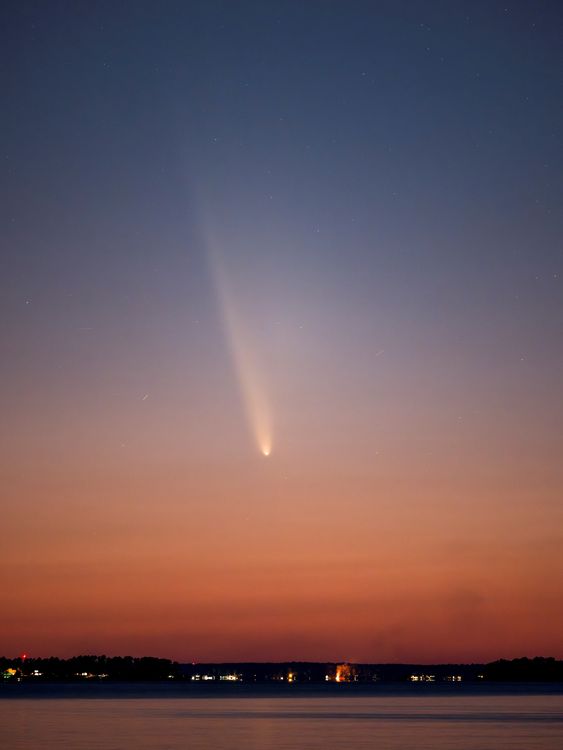
Lake Murray near Columbia, South Carolina. Pic: Reuters
It is believed the comet came from the Oort Cloud – a giant spherical shell that surrounds our solar system and contains billions of objects including comets – according to the Royal Astronomical Society (RAS).
The comet has been billed as the “comet of the century” in some quarters, the RAS said.
It was discovered independently in January 2023 by two observatories – China’s Tsuchinshan (Purple Mountain) Observatory and South Africa’s ATLAS (Asteroid Terrestrial-impact Last Alert System) – and was named after them.
Read more from Sky News:
Why we’re seeing the Northern Lights more often
Details of Alex Salmond’s last moments emerge
The comet A3 was previously visible from Earth between 27 September and 2 October when it travelled across the southern hemisphere.
And don’t worry if you missed it last night, it should still be visible until 30 October.
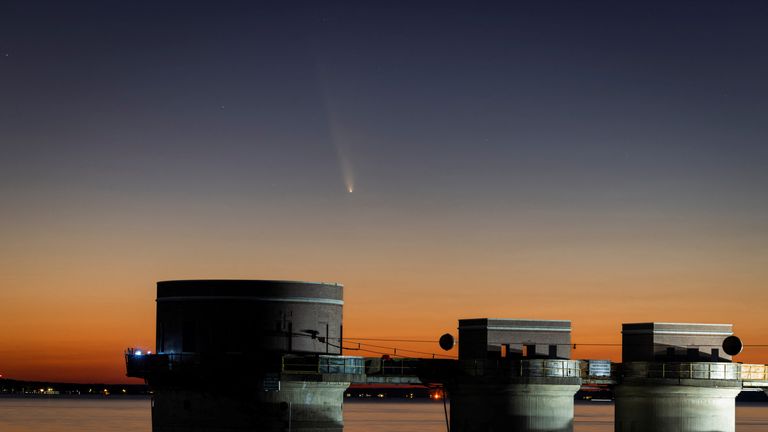
Lake Murray Dam Hydroelectric Intake Towers near Columbia, South Carolina. Pic: Reuters
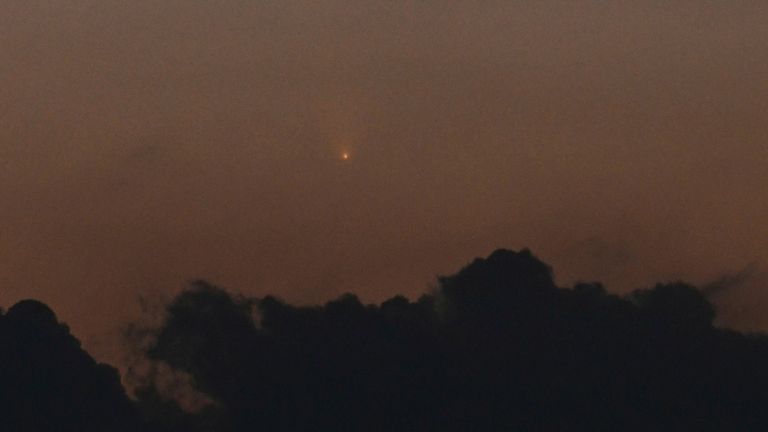
Kamakura City in Japan. Pic: AP
Dr Robert Massey, deputy director of the RAS, said getting a photo of the comet may be possible, particularly if using a digital single-lens reflex camera.
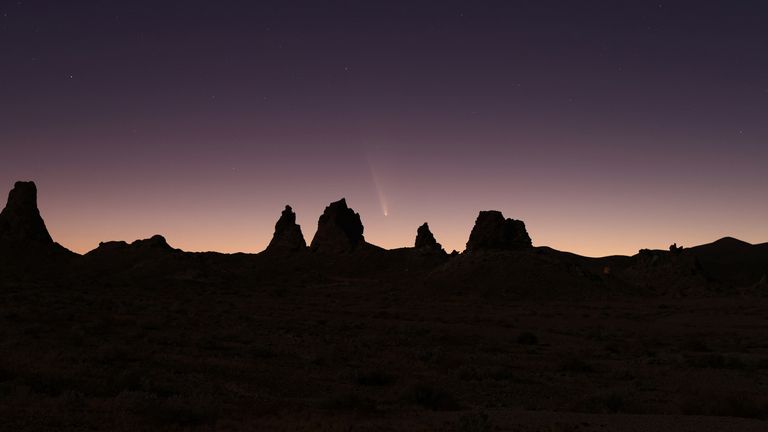
The comet is seen from Trona Pinnacles, California. Pic: Reuters
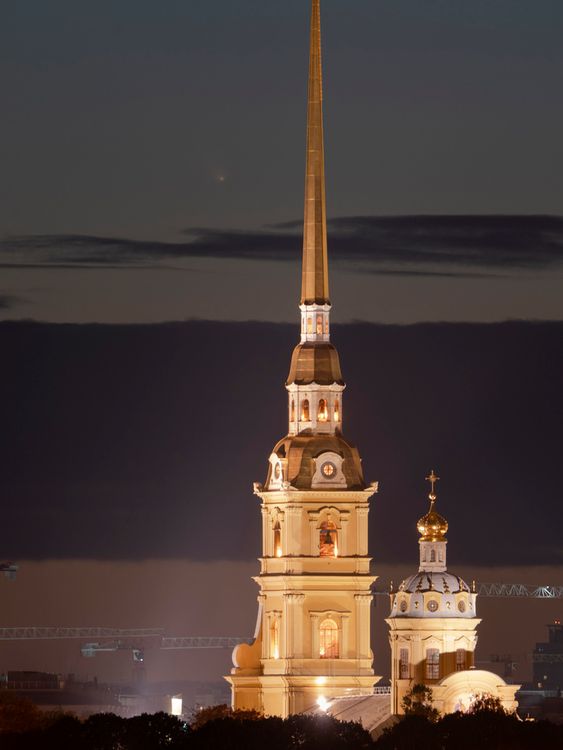
A slight view of the comet next to the Saints Peter and Paul Cathedral in Russia. Pic: AP
If you have a good mobile phone camera and a small telescope, he added, you can “hold the mobile phone against the eyepiece of the telescope and try to take a picture that way”.
Dr Massey said that method “worked well” with comets like NEOWISE in 2020.
Recent Posts
- 18 Polisi Peras WN Malaysia di DWP Bakal Disidang Etik Pekan Depan
- American Airlines ‘briefly’ grounds all flights in US
- Hilton & Voyager Space Share Details on the Future of Food, Comfort in Space Travel at the 75th International Aeronautical Congress Panel
- Stranded NASA astronauts send Christmas message from space | Science, Climate & Tech News
- Sekjen PDIP Hasto Tersangka KPK Dijerat Pasal Beri Hadiah ke KPU
Recent Comments